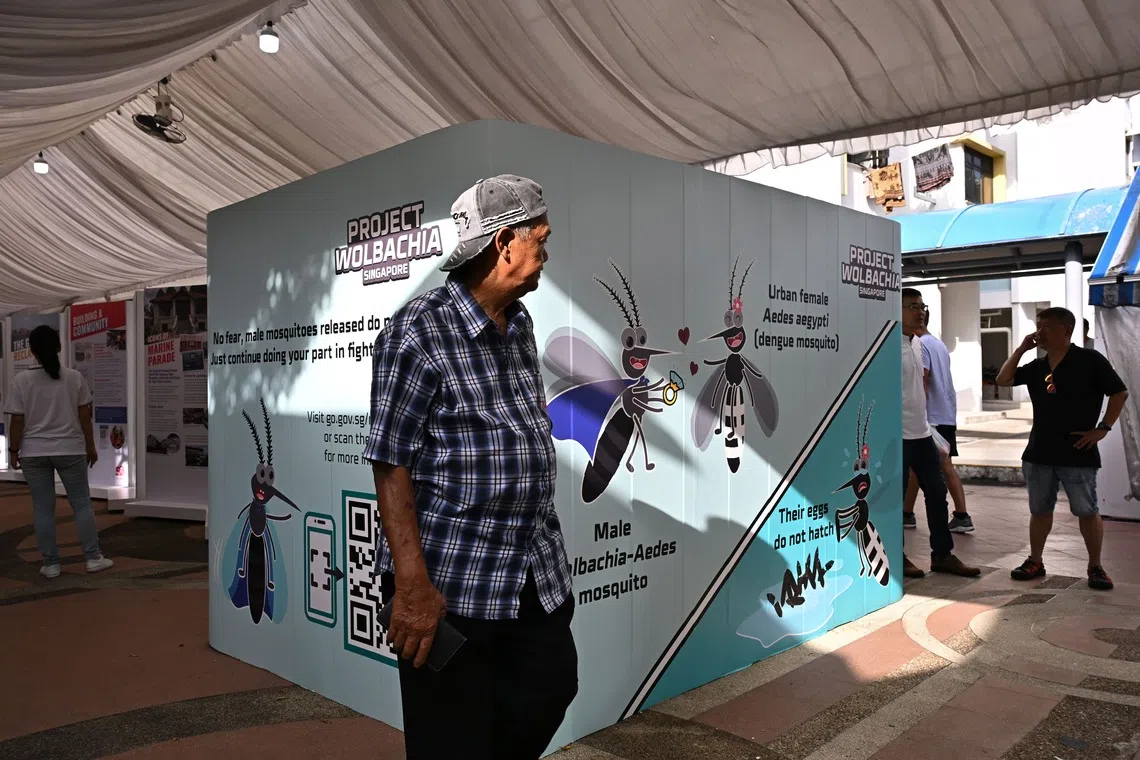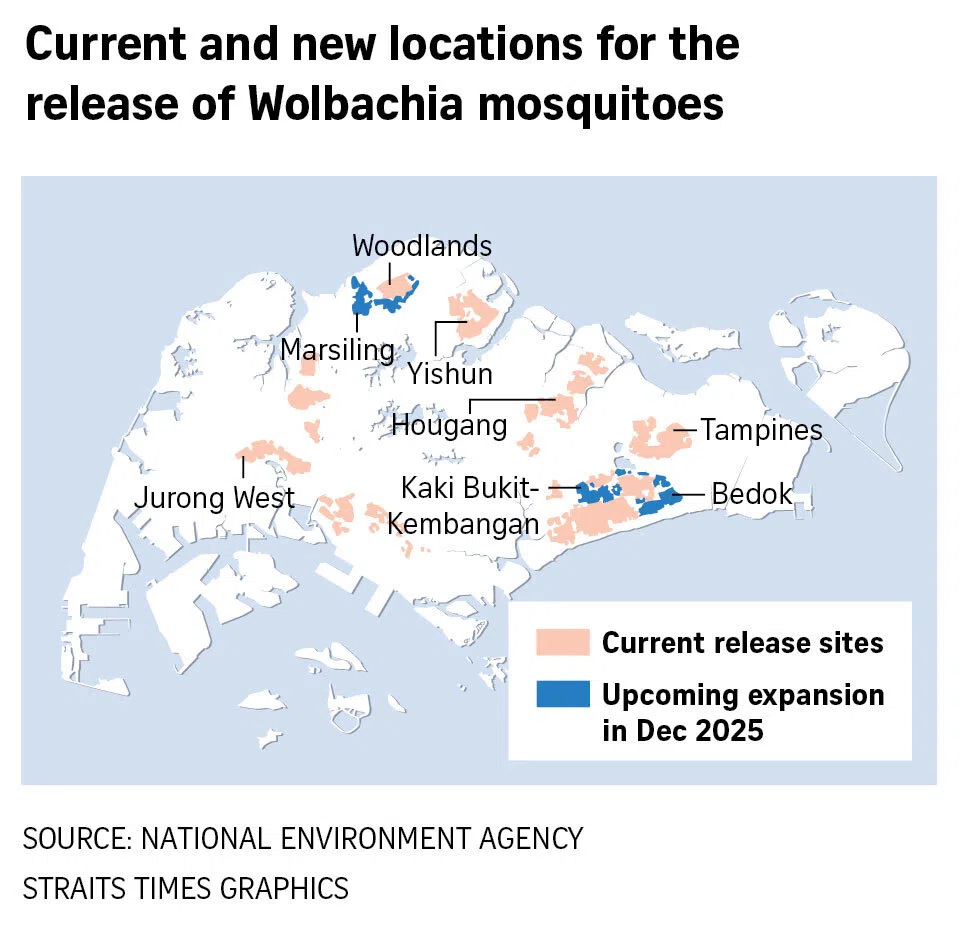Project Wolbachia to be expanded to four new locations in December
Sign up now: Get ST's newsletters delivered to your inbox

The Project Wolbachia expansion will increase its total coverage from 580,000 households to 660,000 households in Singapore.
PHOTO: ST FILE
SINGAPORE - The initiative to control the spread of the Aedes mosquito population by releasing lab-grown male Wolbachia mosquitoes will be extended to four more areas in December.
Project Wolbachia will be expanded to sites in Marsiling, Woodlands and Kaki Bukit-Kembangan from Dec 16, and in Bedok from Dec 17, increasing its total coverage from 580,000 households to 660,000 households in Singapore.
This puts the initiative on track to protect 50 per cent of all households here by end-2026
Under the project, lab-grown male mosquitoes carrying the Wolbachia bacteria are released in high-risk dengue areas.
When these male mosquitoes, which do not bite, mate with females, the eggs produced will not hatch, leading to a reduction in the mosquito population over time.
Project Wolbachia has reduced the dengue risk by over 70 per cent and decreased mosquito populations by 80 per cent to 90 per cent across multiple sites since its implementation in 2022.
NEA added that residents in surrounding areas were also found to be 45 per cent less likely to contract dengue compared with those in areas with no releases of Wolbachia mosquitoes.
The production of Wolbachia-Aedes mosquitoes is currently met by two separate facilities managed by NEA and Debug.
Debug has supported NEA’s mosquito production and release efforts with its automation technology for the production, sex-sorting and release of male Wolbachia-Aedes mosquitoes at the Tampines and Marine Parade sites since 2023.
Since the first quarter of 2024, Debug has started releases in six additional sites including Bukit Merah-Telok Blangah, Clementi-West Coast, Commonwealth, Holland, Marine Parade-Mountbatten and Jurong East.
NEA had previously said locations were chosen based on historical dengue risk and the Aedes mosquito population
A third mosquito production facility, which will be operated by a new contractor, will also soon be established.

In a Nov 24 Facebook post about the expansion of Project Wolbachia, Senior Minister of State for Sustainability and the Environment Janil Puthucheary reminded Singaporeans to do their part to reduce mosquito breeding sites.
Residents should use the BLOCK method to prevent the spread, both Dr Janil and NEA advised:
Break up hardened soil;
Lift and empty flowerpot plates;
Overturn pails and wipe their rims;
Change water in vases;
Keep roof gutters clear and place BTI insecticide inside.
Data from the NEA website shows there were 2,219 dengue cases between January and June 5
There are four dengue serotypes, or strains, with DenV-2 having been the dominant one in the Republic since September 2023.



